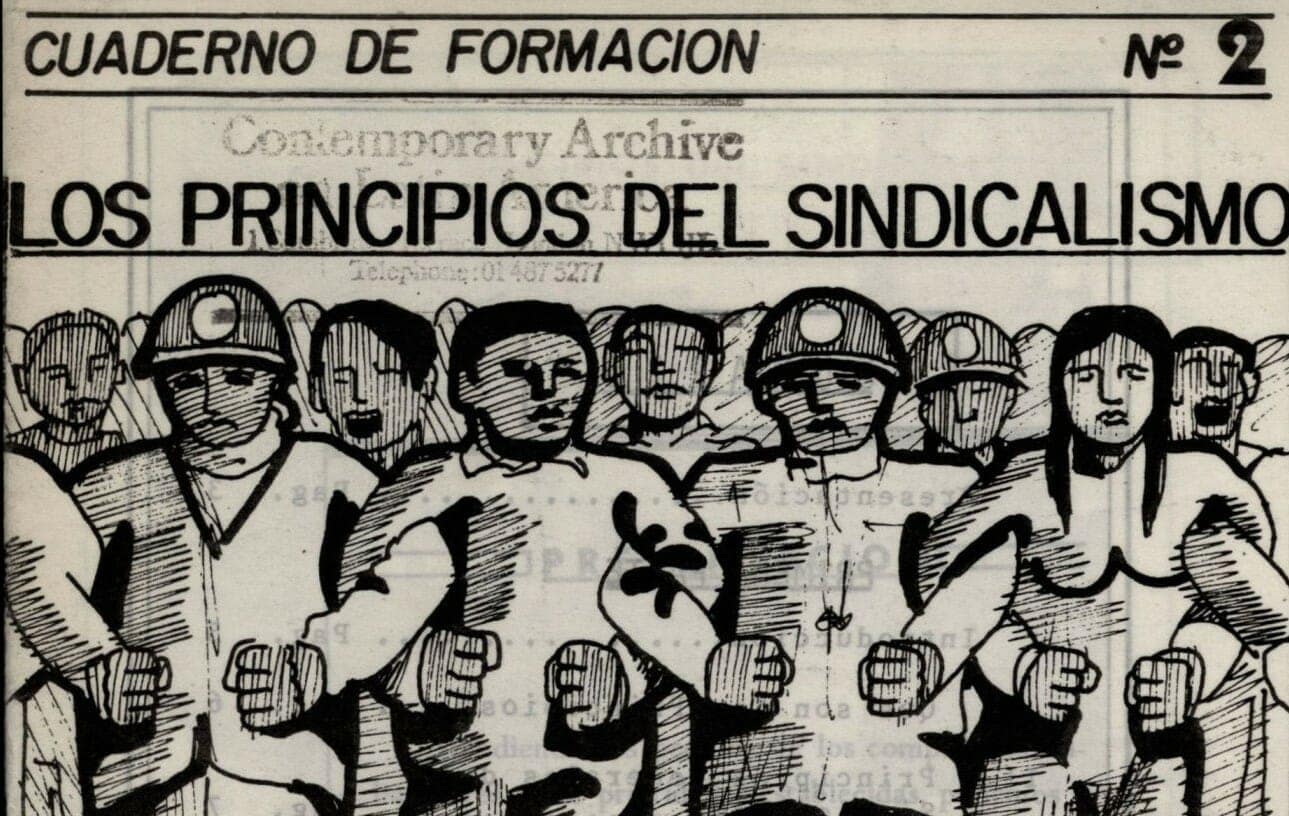│By Emma Harris, Associate Editor, Gale Primary Sources│
Global Communist and Socialist Movements is the third instalment of the award-winning Political Extremism and Radicalism series. For researchers interested in the workings of radical thinking, rhetoric, and twentieth century politics, this module offers a broad scope of material on left-wing thinking and political ideologies such as Marxism-Leninism, Maoism, Trotskyism, and anarchism, adding to the material on far-right groups and some areas of the far left already in the Political Extremism and Radicalism series.
This module provides excellent international coverage, including material from the USA, UK, Europe, Latin America, and South Africa. This grants researchers the opportunity to study the historical trajectories of left-wing radical movements across the globe, considering how these groups saw themselves, as well as the reactions of the capitalist nations in which they emerged. The twenty-one collections digitised from eight source libraries contain approximately 870,000 pages, with documents ranging primarily from 1880 to 1960.
Women’s Roles in the Far Left
Two key collections in this archive which illustrate women’s roles in the far left are the Rose Pastor Stokes Papers and the Anna Strunsky Walling Papers, both from Yale University Libraries. Pastor Stokes and Strunsky Walling both played integral parts in the fight for workers’ rights in the USA.
• Rose Pastor Stokes
Born in present-day Poland before moving to America, Pastor Stokes demonstrated a deep commitment to women’s issues and the labour movement. Her papers include an article championing the Russian Soviet Government’s recognition of motherhood as a “social function” and the work it did to regulate and improve women’s working conditions, as well as pamphlets and articles related to workers’ strikes that she supported. This collection also highlights her role in the Communist Party of America, of which she was a founding member.
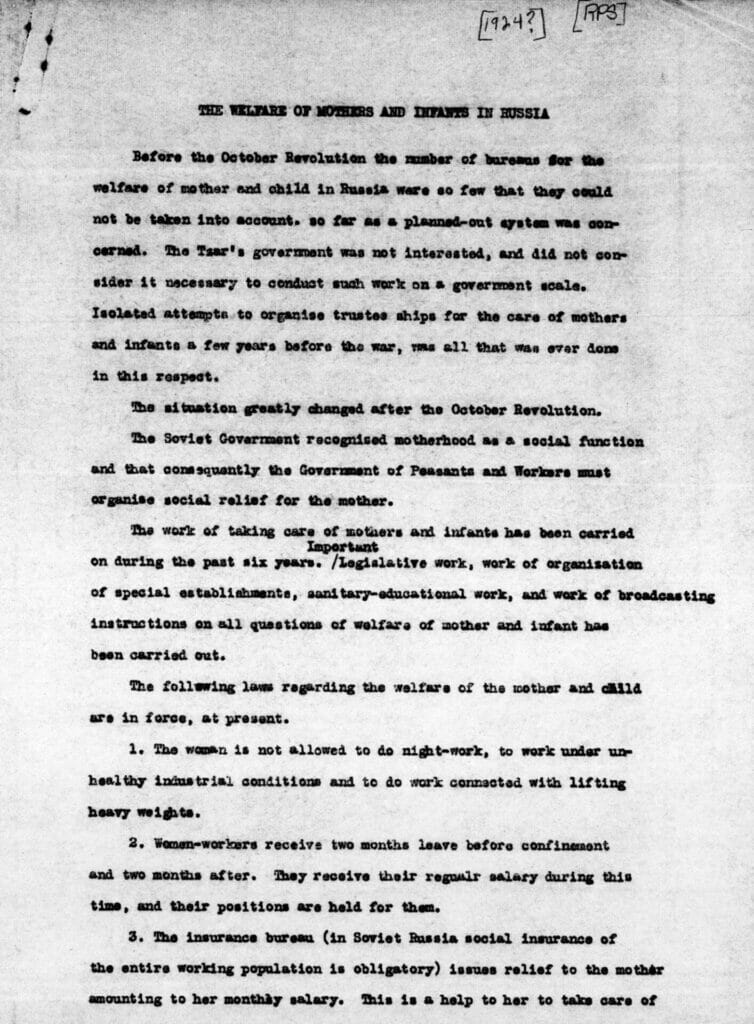
• Anna Strunsky Walling
A novelist by profession, Strunsky Walling was also an advocate of socialism and the labour movement, topics which some of her works featured. Her papers include a wealth of correspondence from herself, her family, and the friends she surrounded herself with in the USA and Europe, including the novelist and activist Jack London, and the anarchist and socialist Leonard Abbott. Also amongst the correspondence are letters from her husband and American socialist, William English Walling, whom she met whilst reporting on the failed revolution in Russia in 1905. These papers highlight the causes Strunsky Walling wrote about, including the 1908 Springfield race riot.
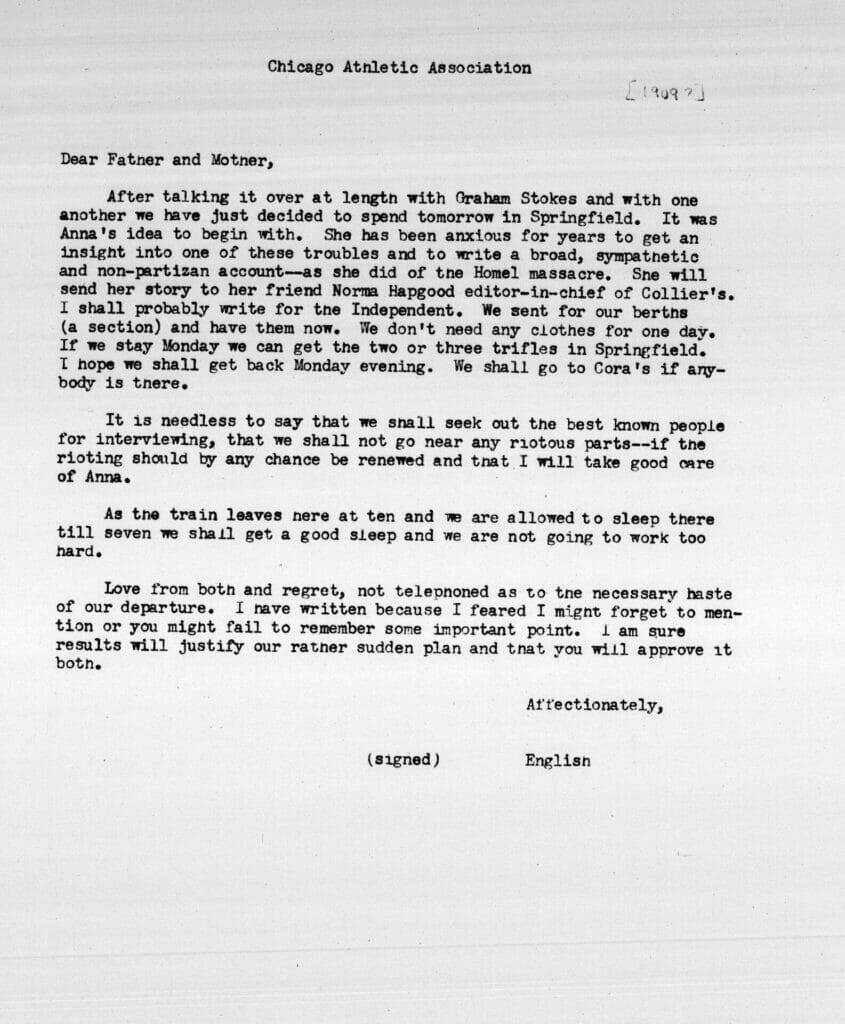
The Workers’ Party of South Africa
The Global Communist and Socialist Movements module also contains sources which highlight the relationship between anti-imperialist movements and revolutionary, far-left groups. The document below from the Workers’ Party of South Africa collection (sourced from Senate House Library, University of London), offers an example of this. Written to commemorate the nineteenth anniversary of the Russian Revolution, the statement explores the relationship between anti-imperialism and anti-capitalism. The author argues that imperialism is responsible for the “era of Fascism” that has fought “the workers and peasants for their more complete enslavement.” Moreover, they call for a joint revolution between the “international working class and the oppressed colonial people” to overthrow “Imperialism-Capitalism”, which they believe has brought “brutal enslavement” upon workers and peasants in South Africa.
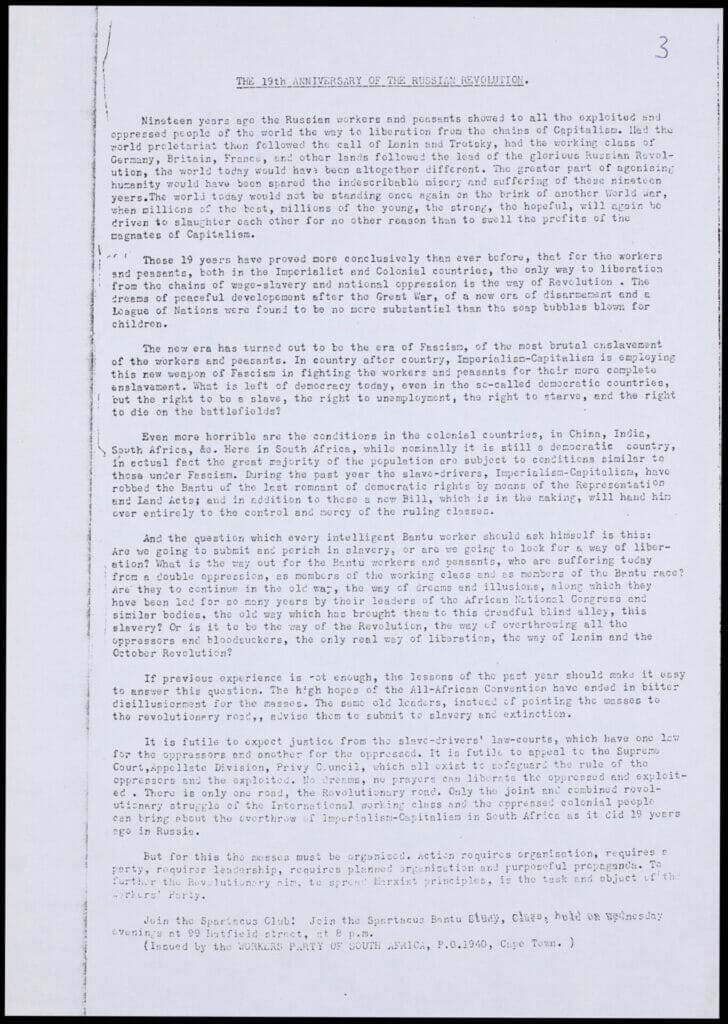
Chile and Bolivia Pamphlets
Another aspect of this archive is the material that highlights the importance of international solidarity and support in the development of left-wing and far-left groups in the twentieth century. The Chile and Bolivia Pamphlets collection (also from Senate House Library, University of London), offers a wealth of material predominantly related to the development of socialism and communism and the resistance to military rule in both Bolivia and Chile, and demonstrates the role of international solidarity.
Groups such as the Movimiento de Acción Popular Unitaria (MAPU) produced pamphlets calling for international support. In one example, MAPU championed demonstrations in Britain, such as boycotts performed by Liverpool dockers, that fought against Pinochet’s fascist dictatorship in Chile, where many leftists and socialists were persecuted. The pamphlet continues to emphasise the importance of internationalism, providing suggestions of how countries could support the Chilean resistance, such as “refusing to provide arms and financial help”, “reducing trade” and “welcoming to Britain refugees who have been forced to leave Chile”.
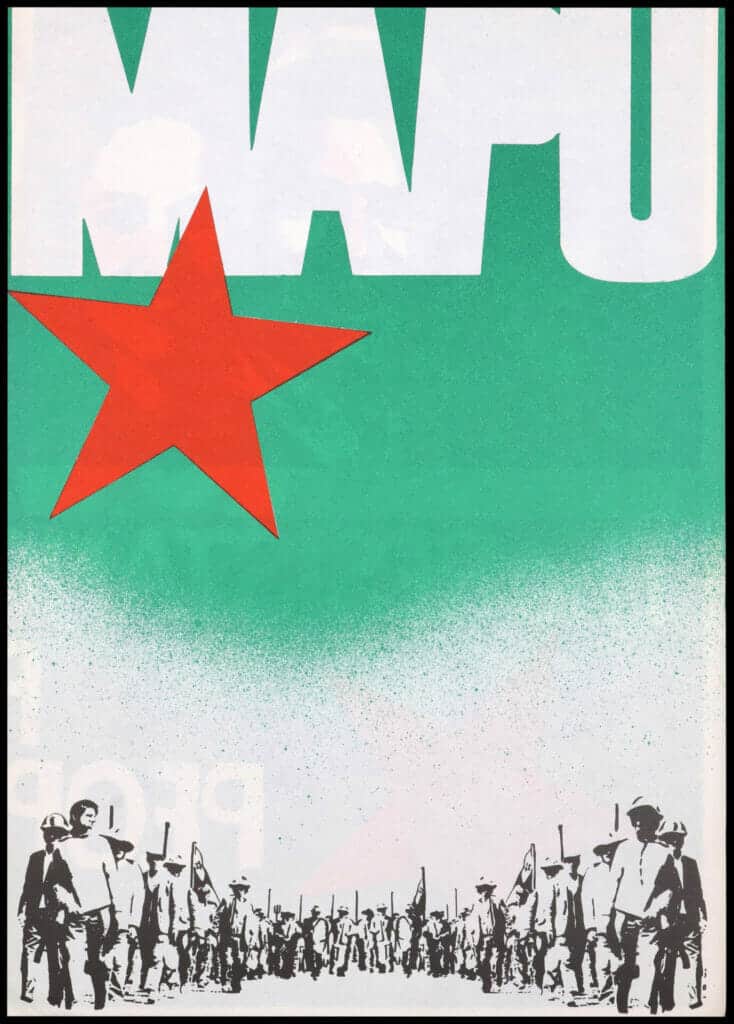
Anti-Socialist Organisations in Britain
One collection that offers insight into the reactions against socialism in Britain is the Anti-Socialist Organisations in Britain, Anti-Socialist Journals collection, sourced from the British Library. The collection consists of complete surviving runs of a variety of journals whose aims focused on combatting socialism in Britain and globally. Titles such as Capital and Labour show researchers how some argued that the principles of socialism and communism threatened economic growth and prosperity, and highlighted the importance of the private ownership of land and property. In one article discussing socialist developments in the USA, Capital and Labour argued that abolishing capital couldn’t be achieved without destroying wealth and suggested that the principle of land confiscation was taking away the “right of a man”.
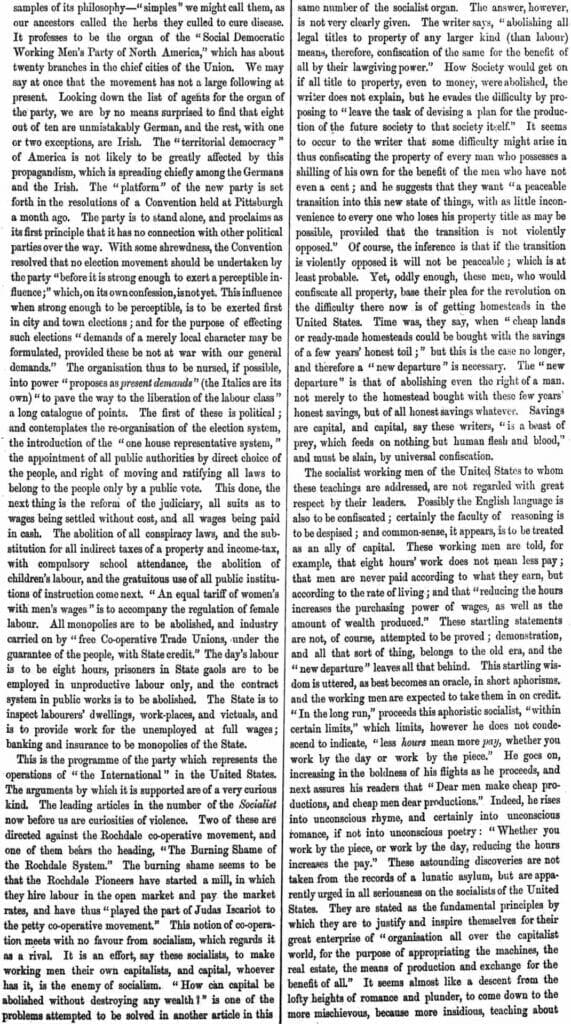
Gale’s Political Extremism and Radicalism: Global Communist and Socialist Movements archive allows researchers to understand how many communist and socialist groups in capitalist nations evolved, and how they viewed themselves and the world during major events of the twentieth century.
If you enjoyed reading about this collection in the Political Extremism and Radicalism series, you may like:
- Gale’s Political Extremism and Radicalism Archive: Why create it and why is it important now more than ever?
- Can Digital Humanities teach us more about political extremism?
- The Power of Voice: Oral Histories in Gale’s Political and Extremism and Radicalism archive
- Writing Sensitive Personal Histories
- The Historical Context Behind Projections of the ‘Dangerous Drag Queen’ by the Far Right
- Lily Cratchley explores how she used Political Extremism and Radicalism when writing an essay about Margaret Atwood’s The Handmaid’s Tale
Blog post cover image citation: Centro De Promoción Minera (Bolivia). Los Principios Del Sindicalismo. 1980. MS Chile and Bolivia: Political Pamphlets: Bolivia L 320 PAM/4/04. Senate House Library, University of London. Political Extremism and Radicalism, https://link.gale.com/apps/doc/KDXJBI237951891/PLEX?u=webdemo&sid=bookmark-PLEX&xid=64df0bee&pg=1

